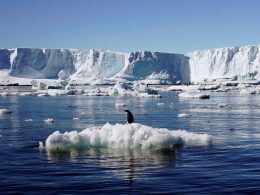Climate change is a topic that has been on the forefront of global discussions for years, and for good reason. The scientific evidence overwhelmingly shows that human activities are contributing to rising temperatures, extreme weather events, and other changes that are having serious consequences for ecosystems and societies around the world. In this article, we will explore the science of climate change, its effects on our planet, and what we can do about it.
The Science of Climate Change
Climate change refers to the long-term changes in the Earth’s climate, including changes in temperature, precipitation, and weather patterns. The primary cause of climate change is the increase in greenhouse gas concentrations in the atmosphere, particularly carbon dioxide (CO2), which is released by human activities such as burning fossil fuels, deforestation, and industrial processes.
The Intergovernmental Panel on Climate Change (IPCC), a scientific body established by the United Nations, has concluded that it is extremely likely that human activities have caused most of the observed warming since the mid-20th century. This warming is already having serious consequences, including more frequent and intense heatwaves, droughts, floods, and hurricanes.
The Effects of Climate Change
The effects of climate change are widespread and have significant implications for the future of our planet. Some of the most notable effects include:
- Rising sea levels: As the Earth’s temperature rises, the polar ice caps are melting, causing sea levels to rise. This puts coastal cities and communities at risk of flooding and displacement.
- Extreme weather events: Climate change is causing more frequent and intense extreme weather events, including hurricanes, floods, droughts, and heatwaves. These events can cause widespread damage and loss of life.
- Ecosystem changes: Climate change is causing changes to ecosystems around the world, including the melting of permafrost in the Arctic, coral bleaching in the oceans, and changes in the timing of seasonal events like flowering and migration.
What We Can Do About It
While the problem of climate change is daunting, there are steps we can take to address it. Some of the most effective solutions include:
- Reducing greenhouse gas emissions: The most important step we can take to address climate change is to reduce greenhouse gas emissions. This can be achieved through a variety of means, including transitioning to renewable energy sources, improving energy efficiency, and reducing deforestation.
- Adapting to the changing climate: Even if we take steps to reduce emissions, the climate will still change, and we will need to adapt to these changes. This could involve building sea walls to protect coastal cities from rising sea levels, developing drought-resistant crops, and improving emergency response plans for extreme weather events.
- Supporting international action: Climate change is a global problem, and it will require global solutions. This means supporting international efforts to reduce emissions, such as the Paris Agreement, and providing funding to help developing countries transition to low-carbon economies.
Conclusion
Climate change is one of the most pressing issues facing our planet today. The science is clear that human activities are contributing to rising temperatures and other changes that are having serious consequences for ecosystems and societies around the world. However, there are steps we can take to address this problem, including reducing greenhouse gas emissions, adapting to the changing climate, and supporting international action. By working together, we can help to ensure a sustainable and healthy future for ourselves and future generations.












